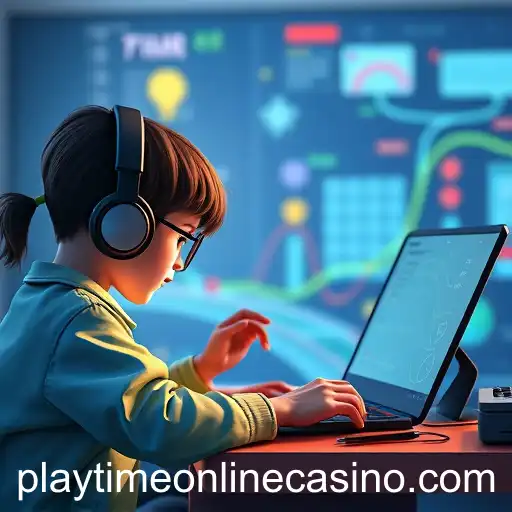
The Evolution of Playtime in the Digital Age

As we navigate through the technological advancements of the 21st century, the concept of 'playtime' has undergone a significant transformation. What was once dominated by outdoor activities and physical games has shifted dramatically towards digital platforms, especially on English game websites that provide a diverse range of interactive experiences.
In recent years, the digital gaming industry has exploded, offering experiences that range from simple, casual games to elaborate, immersive environments. This shift has been largely facilitated by improved internet accessibility, the proliferation of smartphones, and advancements in gaming technology, making games more accessible and appealing to a broader audience.
This dynamism in the gaming world is particularly evident with the rise of augmented reality (AR) and virtual reality (VR) games, which are gaining traction for their ability to offer unique, interactive experiences that were unimaginable just a few decades ago. These new game formats not only enhance the player's experience but also encourage more active engagement, blurring the lines between reality and the digital world.
Culturally, this evolution in playtime is impacting social dynamics among different age groups. While older generations may reminisce about traditional games, younger gamers are forging friendships and communities online through shared gaming experiences. The social aspect of gaming is rapidly becoming a cornerstone of modern playtime, with many games incorporating features such as multiplayer modes, in-game chat, and social media integration.
While the benefits of digital playtime, such as improved cognitive skills and increased social interaction, are widely recognized, challenges such as screen time management and the risk of online addiction are being actively addressed by both game developers and policymakers. Efforts to create a balanced approach to gaming are encouraging discussions on responsible game design and implementation of parental controls.
As we look towards the future, the term 'playtime' will continue to evolve. With technological advances and changing societal norms, playtime on digital platforms is likely to become even more sophisticated, offering richer interactions and more personalized experiences. The ongoing developments in artificial intelligence and machine learning will further revolutionize the way we experience games, paving the way for highly adaptive and customized play environments.
In conclusion, playtime in the digital era represents a dynamic intersection of technology, society, and culture. It is a testament to how far we have come from traditional forms of play and a glimpse into the future of interactive entertainment.
The Evolution of Online Playtime in 2025

Explore how online gaming has transformed in 2025, blending news, technological advancements, and community impact.
2025-11-09
Digital Games Revolutionizing Learning and Entertainment

Exploring the impact of digital games on education, mental health, and the dynamics of playtime in a rapidly changing world.
2025-12-01
Debate Over Screen Time and Digital Play in the Modern Era

Exploring the balance between digital engagement and traditional play amid rising digital game popularity.
2025-11-16
The Evolution of Online Playtime: A 2025 Game Overview

Explore the latest trends and developments in online gaming in 2025, including advancements in virtual reality and the growth of esports.
2025-12-10






